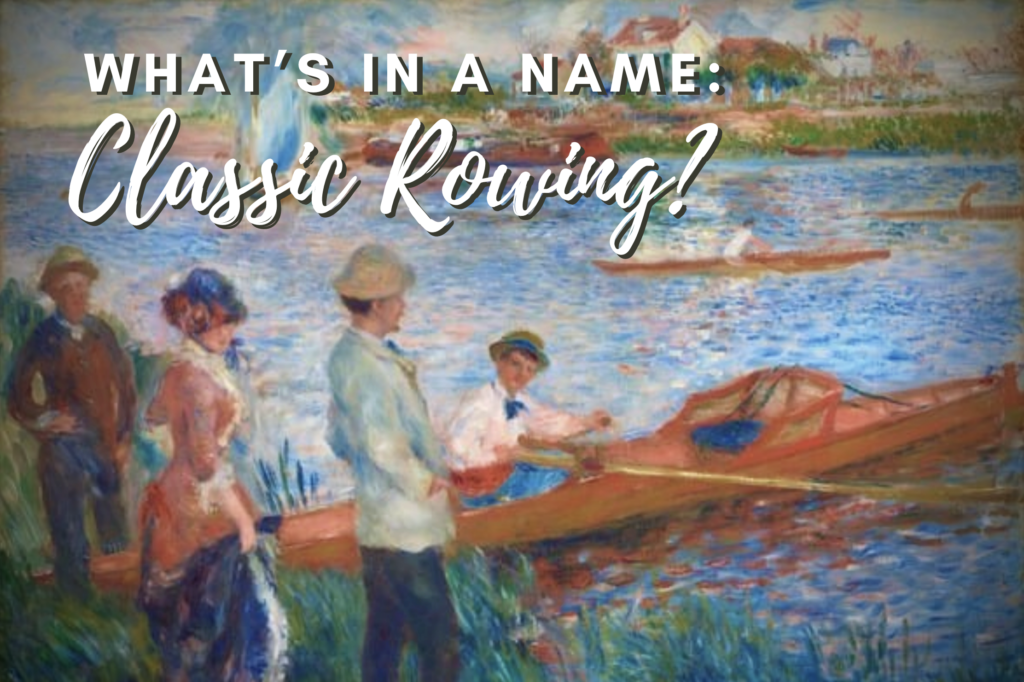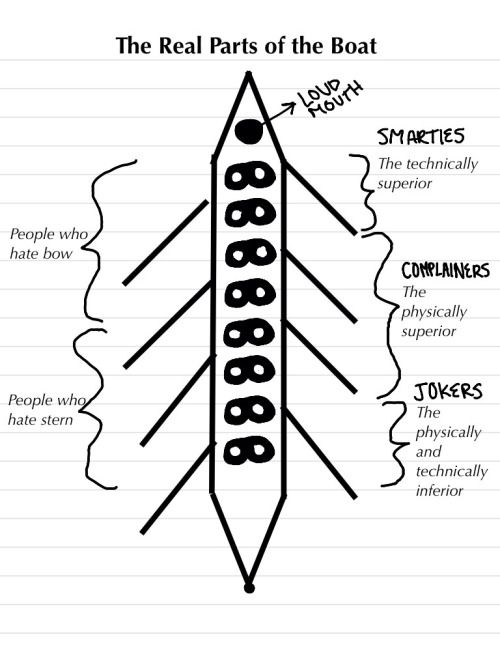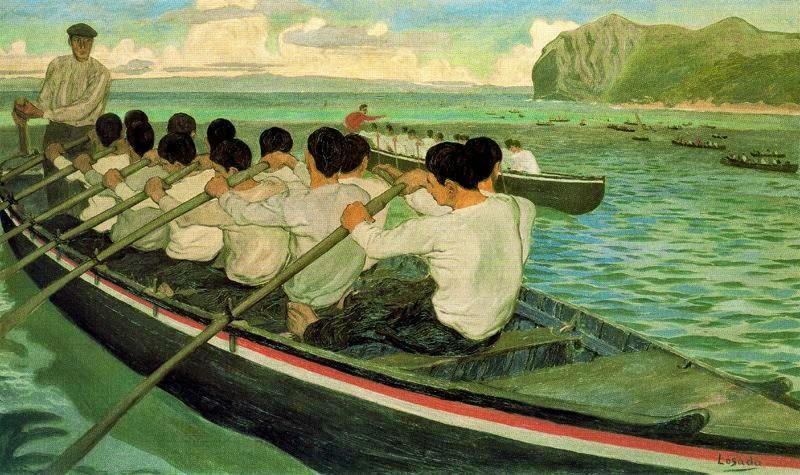
What’s In a Name: Classic Rowing?
I don’t remember where I first saw it but it was this summer. I immediately understood what “classic rowing” referred to and I liked the term. So much better than flatwater or Olympic class or any of the other terms denoting skinny, tippy boats typically rowed on rivers, lakes or short basins and raced in 1000m, 2000m or head race regattas. It seems that just about every other type of rowing had a descriptor, such as fixed seat rowing or para rowing and especially fast-growing coastal rowing and indoor rowing. Rowing is evolving and so should the terminology.

Is Classic Rowing an official term?
Short answer is that it is not clear. My recollection is that I saw classic rowing used by World Rowing. Yet when I went googling, I could not find the reference that had caught my eye nor determine the origin of the term. I am not sure if it has been officially adopted by World Rowing. I found references on the World Rowing Education Academy, where the different rowing “disciplines” are referred to: classic; coastal, para and indoor. The Agenda Papers for the WR Ordinary Congress in September 2022 refer to “classic” as a rowing discipline, particularly in relation to Development and to the Competitive Rowing Commission. The designation also appears in the Agenda Papers for the 2021 Ordinary Congress. But the word classic does not appear in the 2020 Ordinary Congress Agenda Papers. And to further muddy the water, in a news article on 11 Nov 22 by World Rowing, the term “flatwater” is used, not classic rowing. There are other places on the World Rowing website where flatwater is used.
Is anyone else using the term? The answer is no. National federations don’t seem to refer to it, based on a quick check of Rowing Canada Aviron, USRowing and British Rowing. Rowing Ontario says that there are three rowing disciplines: flatwater, indoor and coastal. No classic. A search for “classic” on Rowing News, Row360 and row2k.com only turn up references to regattas with “classic” in their name, especially the famous San Diego Crew Classic. On Facebook groups like Masters Rowers International, classic only denotes older, beautiful wooden boats built by the likes of Carl Douglas. There is no discussion in Hear The Boat Sing, surprising since it seems the type of topic that they would enjoy dissecting.
So, does “classic rowing” not really exist or is it just flying under the radar for the moment?
Will it become common parlance?
According to Merriam Webster Dictionary: “A word gets into a dictionary when it is used by many people who all agree that it means the same thing.” Classic rowing is not there yet. Not many people, rowers, are using the term. Which means that there is no consensus about its meaning or when to use the term. Maybe not many people have even noticed it to voice their agreement or displeasure.
I am going to guess that it will be coastal rowers or those who enjoy multiple forms of our sport who will be most eager to adopt the term classic rowing. If it does start to come into more common usage, I suspect that there will be angry voices. Many people resist change of any kind and rowers are no exception. My impression is that some classic rowers feel threatened by the likely future loss of lightweight rowing as an Olympic category and the potential that coastal rowing will be included in the 2028 Olympics in Los Angeles. Their argument might be that there really is only one form or rowing, so why does it need a new descriptor. Perhaps those rowers do not fully understand the depth and range of rowing in all it forms. We view the world through our own lens, strongly influenced by the history of our particular boathouses and our own rowing experiences and preferences. Until I started travelling to row through Rowing The World, I had no appreciation of the diversity of rowing that existed. For example, I did not know about fixed seat rowing, let alone the many forms which it takes. I recently had a fascinating conversation with Volker Nolte. Referring to something else, he stated that most masters rowers race, whereas my observation was the opposite. Thus ensued a good discussion about biases. These biases will influence the discussion about and potential acceptance of classic rowing as a descriptor. Just like for other issues in rowing, such as growing diversity in who is a rower.

We struggle with rowing vocabulary in other ways
Change is possible. A fairly recent and official terminology change was the switch from Juniors to U19. And some terminology will never change. On our Rowing The World trips we always need to have the conversation about calls in the boat when guests come from different countries. Port vs. stroke-side, starboard vs. bow-side, let it run vs. way enuf or however that uniquely American term is spelled. Is it a skeg or a fin, gate or oarlock? Within rowing disciples there is much variation too. Coastal rowing is growing with Beach Sprints now its most recognizable format. However there is a longer form of competition which has been raced for decades – but what exactly is that called? Endurance, long-form or just coastal racing? All of this confusion or inconsistency about terminology suggests to me that rowing is a healthy sport, rich with variation. Embracing and discussing the differences builds connections and makes the sport stronger.

I like classic rowing
I like the discipline and I like the term. Classic denotes something enduring, valuable, well loved and worth preserving. I will be happy to see an end to talking about flatwater rowing – many skinny boat rowers will confirm that they often row on water that is anything but mill pond still, and I have been rowing on the open sea in coastal boats when it has been dead calm and very flat. I am going to talk up classic rowing. Just as I will talk up and support all the other rowing disciplines. Whatever they are called.
What’s in a name?’ That which we call a rose,
By any other name, would smell as sweet.
William Shakespeare, Romeo and Juliet